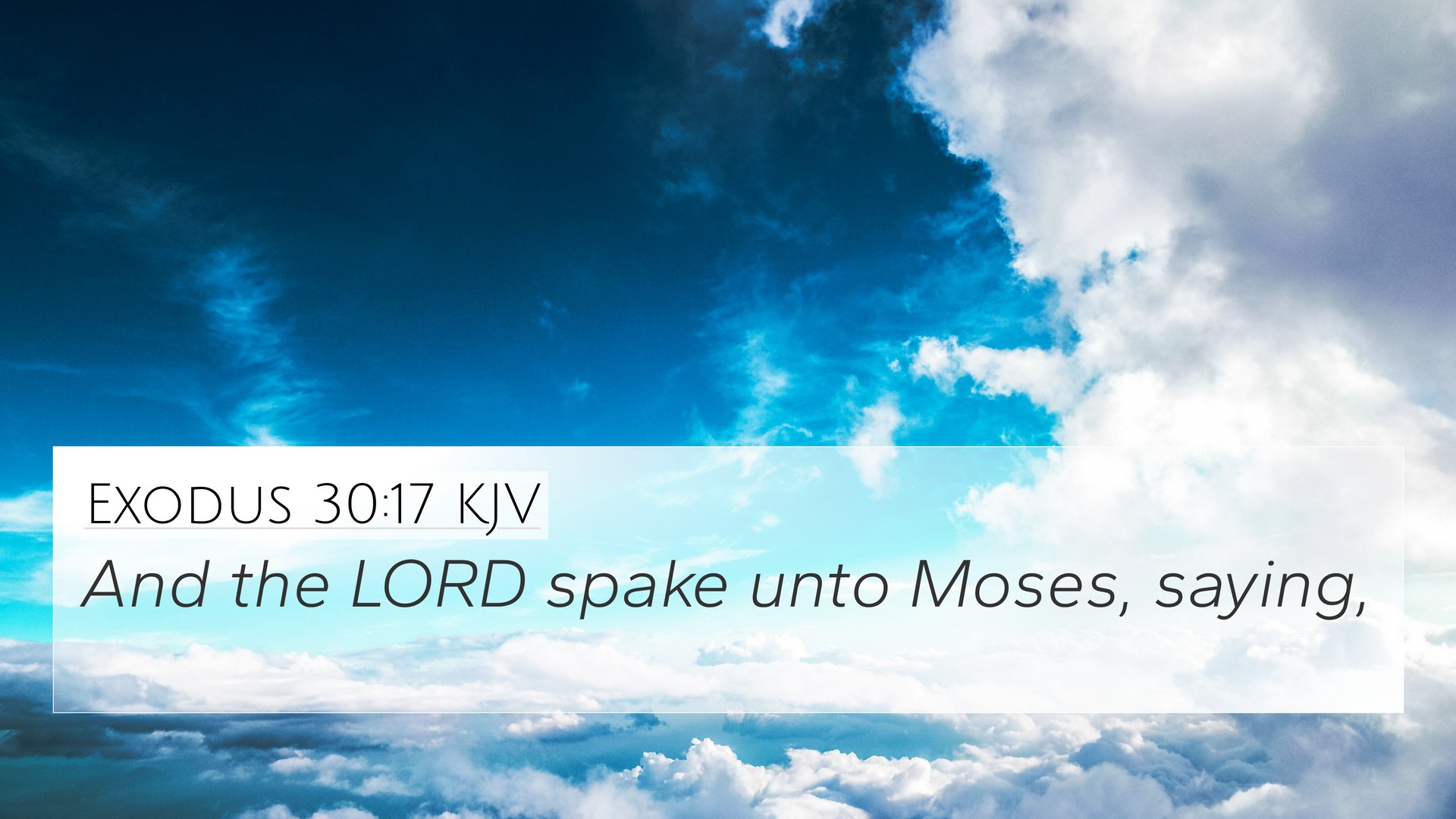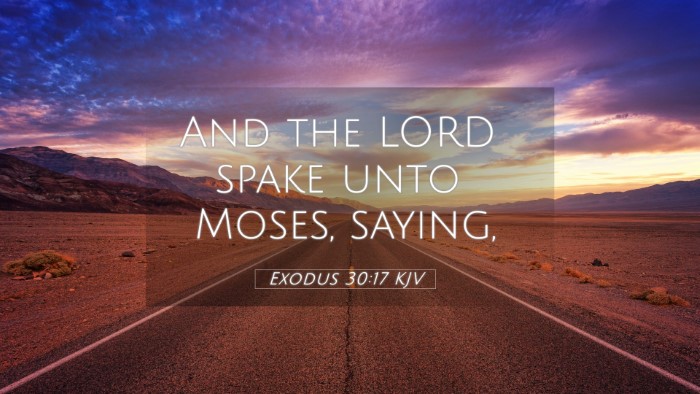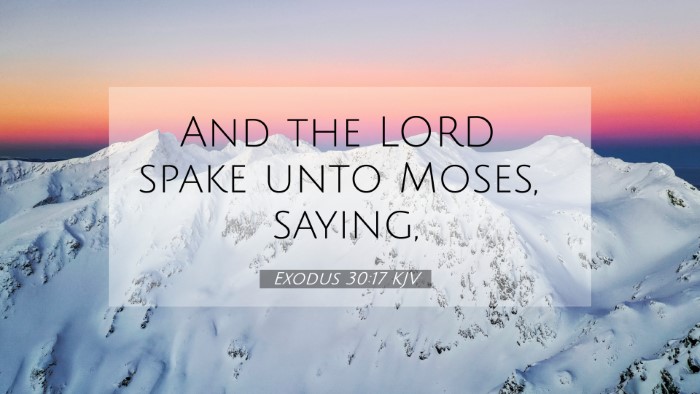Understanding Exodus 30:17
Exodus 30:17 states: “And the LORD spake unto Moses, saying,” which sets the tone for the divine instructions that follow. This verse marks a significant moment in the Israelites' journey as they receive specific guidelines concerning the Tabernacle and worship. The insights provided here draw from various public domain commentaries, reflecting on the implications of God's command.
Context and Importance
The verses surrounding Exodus 30:17 are crucial for understanding the establishment of priestly duties, the role of the Tabernacle, and the significance of purification. Matthew Henry emphasizes that God’s communication with Moses underscores His desire for a structured worship system, highlighting the importance of a ritual in maintaining holiness among the people.
Divine Instruction
According to Albert Barnes, the instructions given were part of a broader covenant between God and Israel. This verse emphasizes the divine origin of the laws and practices, reinforcing that worship must be conducted according to God’s specifications. This reflects a recurring theme throughout the Bible where obedience to God’s commands is foundational to spiritual well-being.
Role of Moses
Adam Clarke outlines how Moses acts as an intermediary between God and the Israelites. His relationship with God is pivotal, as he receives the law and, in turn, teaches the people. This dynamic is vital in understanding the prophetic role that spans throughout the Scriptures, linking the Old Testament to future revelations found in the New Testament.
Cross-References and Thematic Connections
This verse connects deeply with several other biblical texts, emphasizing the importance of worship and the sanctity of God's instructions. Below is a list of Bible verses that relate to Exodus 30:17, showcasing thematic connections and bible verse parallels:
- Exodus 28:1 - Discusses God’s appointment of Aaron and his sons as priests.
- Leviticus 10:1-3 - Illustrates the consequences of failing to follow God’s commands in worship.
- Hebrews 9:1-5 - Explores the earthly sanctuary and its significance in the New Covenant.
- Romans 12:1 - Calls believers to present their bodies as living sacrifices, connecting sacrificial worship to Christian life.
- Mark 7:6-7 - Jesus emphasizes the importance of true worship beyond mere rituals.
- 1 Peter 2:9 - Describes believers as a royal priesthood, linking the Old Testament priestly system to the Church.
- John 4:24 - The necessity of worshiping in spirit and truth highlights the evolution of worship beyond physical spaces.
The Role of Purification
In commentary regarding Exodus 30:17, the theme of purification is significant. The processes described in this chapter reflect the need for holiness in approach to God. Matthew Henry articulates that these purification requirements were not merely rituals but reflected a deeper spiritual reality—humans must approach God with a reverent heart and clean hands.
Practical Applications
For contemporary believers, Exodus 30:17 and its surrounding verses remind us of the importance of following God’s guidance as revealed through Scripture. Practical applications can be drawn from the need for structure in worship and personal holiness. As noted in the Cross-reference Bible study, understanding the nuances of each verse can enhance one’s spiritual life and impart deeper wisdom.
Engaging with Scripture
To effectively engage with the connections between Bible verses, believers can utilize various tools for Bible cross-referencing. These include:
- Bible concordance: A valuable resource for locating themes and specific terms.
- Bible cross-reference guide: A tool for finding connections between particular scriptures.
- Bible reference resources: Encompasses a range of aids for deeper study.
- Cross-reference Bible study: Encourages in-depth exploration of interrelated scriptures.
Conclusion
Exodus 30:17 serves as a cornerstone for understanding God’s prescribed order for worship. Its connections to other scriptures facilitate a broader understanding of biblical themes of holiness, obedience, and the evolving nature of worship. By appreciating these links and employing cross-referencing Biblical texts, believers can enrich their understanding of Scripture and its relevance today.


